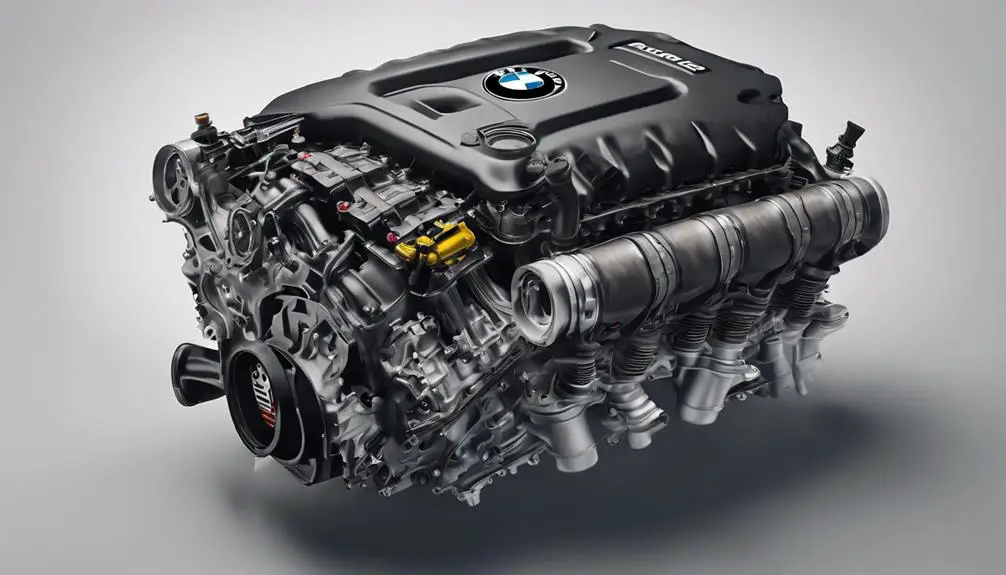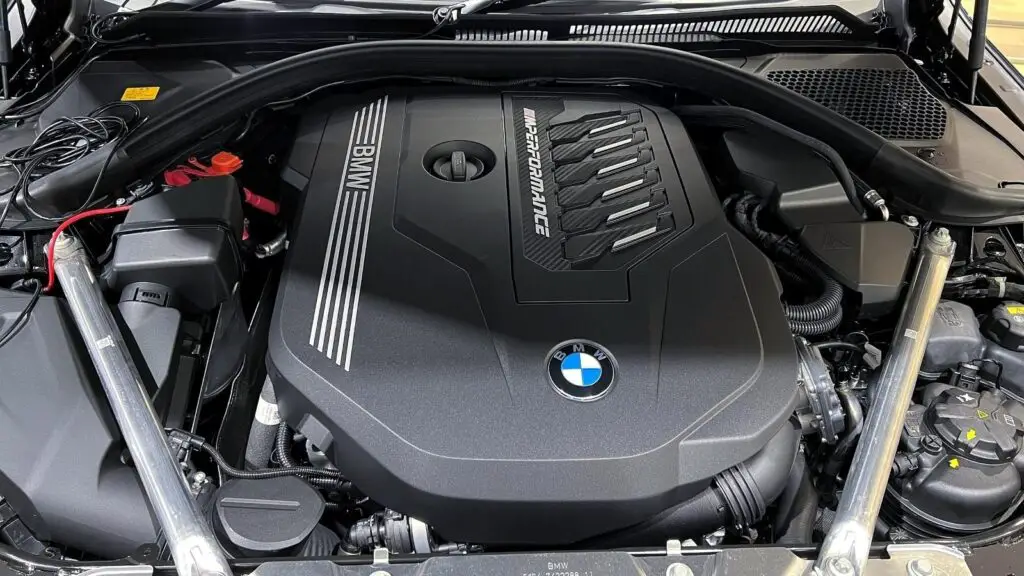BMW B58 engine problems include oil leaks, high oil consumption, coolant leaks, and timing chain issues. Regular maintenance can help prevent these common issues.
The BMW B58 engine, introduced in 2015, is part of BMW’s new generation of inline six-cylinder engines. Known for its smooth performance, impressive power output, and fuel efficiency, the B58 engine has become a core component in many of BMW’s models, such as the 3 Series, 4 Series, 5 Series, and even the Toyota Supra. Despite its reputation for being a well-engineered and reliable powerplant, the B58 engine is not without its problems. Like any complex piece of machinery, it can face issues over time, especially if not properly maintained.
In this detailed guide, we’ll discuss the common problems associated with the BMW B58 engine. From oil leaks to carbon buildup, we will cover the symptoms, causes, and potential solutions for each issue. Additionally, we will provide essential maintenance tips that will help extend the lifespan of the B58 engine and keep it performing at its best.

Contents
- 1 Overview of the BMW B58 Engine
- 2 Common BMW B58 Engine Problems
- 3 How to Maintain for the BMW B58 Engine
- 4 Frequently Asked Questions
- 5 Conclusion
Overview of the BMW B58 Engine
The BMW B58 engine is part of BMW’s modular engine family, which includes the B38 (3-cylinder), B48 (4-cylinder), and B58 (6-cylinder). It’s a 3.0-liter inline-six turbocharged engine that features a TwinScroll turbo, direct fuel injection, and variable valve timing (Valvetronic). The B58 engine is known for its remarkable combination of performance, fuel efficiency, and refinement.
Since its introduction, the B58 engine has been widely praised for its smooth power delivery, impressive acceleration, and high-performance potential. The engine’s design is centered around providing a balance between power and fuel efficiency, making it ideal for use in a wide range of BMW models, including compact sedans, sports cars, and larger SUVs.
Common BMW B58 Engine Problems
While the B58 engine is generally considered a reliable and robust engine, there are some common issues that can arise. Let’s dive into the most prevalent problems faced by B58 engine owners.
1. Valve Cover Gasket Leaks
One of the most common issues with the B58 engine is the valve cover gasket leak. Over time, the gasket that seals the valve cover to the engine can degrade, resulting in oil leaks. This issue often occurs due to the heat cycles the engine goes through. As the gasket hardens and cracks, oil can seep out and cause staining around the engine or even lead to oil pooling beneath the car.
Symptoms:
- Oil spots on the garage floor or driveway.
- Burning oil smell inside the cabin.
- Low oil levels over time.
Solution:
- Replacing the valve cover gasket is a relatively simple fix. Ensure to use OEM parts to avoid premature gasket wear.
- Regularly check oil levels and monitor for signs of leakage.
2. Oil Filter Housing Leaks
Another common issue with the B58 engine is oil filter housing leaks. The oil filter housing is responsible for securing the oil filter and ensuring that oil is properly distributed through the engine. Over time, the gasket that seals the oil filter housing can wear down, causing oil to leak from the engine. This issue can lead to significant oil loss if left unchecked.
Symptoms:
- Oil spots on the engine bay or garage floor.
- Low oil levels.
- Engine oil warning light on the dashboard.
Solution:
- Replacing the oil filter housing gasket or O-rings can resolve this issue. As with the valve cover gasket, using high-quality OEM parts is essential for long-lasting repairs.
- Check oil levels frequently to prevent running the engine with low oil.
3. High Oil Consumption
Some B58 engine owners report higher-than-normal oil consumption. While some oil consumption is typical in any engine, excessive consumption can indicate internal issues, such as worn piston rings or valve seals. If left untreated, this problem could lead to engine damage over time.
Symptoms:
- Frequent need to top up oil levels between oil changes.
- Excessive exhaust smoke (blue or white).
- Poor engine performance and rough idling.
Solution:
- Perform a compression test to check for worn piston rings.
- Replace valve seals if they are leaking.
- If the issue persists, a more in-depth engine inspection may be required to check for underlying causes.
4. Coolant Leaks
Coolant leaks are another common problem in the B58 engine. Over time, hoses, gaskets, and the water pump can develop leaks. This issue can cause coolant levels to drop, leading to the engine overheating if not addressed.
Symptoms:
- A sudden drop in coolant levels.
- Overheating engine.
- Coolant spots on the ground or in the engine bay.
Solution:
- Inspect the water pump, radiator hoses, and gaskets for any visible leaks.
- Replace any faulty hoses or seals as needed.
- Ensure that the coolant reservoir cap is tightly sealed.
5. Timing Chain Tensioner Issues
The timing chain tensioner is responsible for maintaining the proper tension on the timing chain. If the tensioner fails, it can result in a loose timing chain, which can lead to engine misfires, poor performance, and even catastrophic engine failure in extreme cases.
Symptoms:
- Rattling or knocking noises from the engine, especially at idle.
- Poor engine performance.
- Check engine light related to timing or misfire codes.
Solution:
- Replacing the timing chain tensioner is necessary. If there’s significant damage to the timing chain, it may need to be replaced as well.
- Regularly listen for unusual engine noises to detect tensioner problems early.
6. Carbon Buildup on Intake Valves
Due to the direct fuel injection system used in the B58 engine, carbon buildup on the intake valves is a potential issue. Direct fuel injection engines tend to deposit carbon on the intake valves since fuel doesn’t wash over them like in traditional port-injected engines.
Symptoms:
- Rough idle.
- Decreased engine performance.
- Increased fuel consumption.
Solution:
- A common solution to this issue is a process called walnut blasting, which involves cleaning the intake valves using abrasive walnut shells to remove carbon buildup.
- Regular cleaning can help prevent significant buildup.
7. Water Pump Failures
The water pump plays an important role in circulating coolant throughout the engine to prevent overheating. If the water pump fails, it can lead to engine overheating, coolant loss, and potential engine damage.
Symptoms:
- Overheating engine.
- Low coolant levels.
- Leaks around the water pump area.
Solution:
- Replacing the water pump is necessary if it’s found to be faulty. Regularly check the water pump for leaks or unusual noises.
8. VANOS Solenoid Failures
The BMW Variable Valve Timing (VANOS) system helps optimize engine performance by adjusting the timing of the intake and exhaust valves. If the VANOS solenoids fail, the engine can experience rough idling, poor performance, and increased emissions.
Symptoms:
- Rough idle and poor performance.
- Increased emissions or poor fuel efficiency.
- Engine misfires or hesitation during acceleration.
Solution:
- Replacing the VANOS solenoids is necessary. This fix can often be done relatively easily, but may require special tools for diagnosis.

How to Maintain for the BMW B58 Engine
To avoid these common issues, regular maintenance is essential. Here are some key maintenance tips to keep your BMW B58 engine running smoothly:
1. Regular Oil Changes
Changing the oil at regular intervals is one of the best ways to ensure your B58 engine stays in good condition. Using high-quality oil and replacing the oil filter regularly will help prevent sludge buildup and keep the engine properly lubricated.
2. Keep an Eye on Coolant Levels
Always check your coolant levels and inspect for leaks. If you notice any coolant loss, address the issue promptly to avoid overheating the engine.
3. Monitor Oil Consumption
While some oil consumption is normal, excessive consumption can indicate problems. Regularly check your oil levels and top up as needed.
4. Timing Chain Maintenance
Listening for unusual noises, especially at idle, can help detect timing chain tensioner issues early. If you hear any rattling or knocking sounds, address them immediately to avoid serious engine damage.
5. Carbon Buildup Prevention
While carbon buildup is a common issue with direct-injection engines, regular walnut blasting can help keep the intake valves clean. It’s advisable to perform this procedure every 50,000 to 80,000 miles.
Frequently Asked Questions
Here are some FAQs about BMW B58 engine problems –
1. Are BMW B58 engines reliable?
Yes, the BMW B58 engine is generally considered reliable, but like any engine, it requires regular maintenance to avoid common issues such as oil leaks and timing chain problems.
2. How often should I change the oil in my BMW B58 engine?
It’s recommended to change the oil every 7,500 to 10,000 miles, depending on your driving habits and the type of oil used.
3. What are the signs of a failing water pump in the B58 engine?
Common signs include engine overheating, coolant leaks, and unusual noises from the engine bay. If you notice these symptoms, it’s important to inspect the water pump promptly.
4. Can I fix the carbon buildup on my B58 engine myself?
While walnut blasting is often required to clean the intake valves, this is a task best left to professionals, as it requires specialized equipment.
5. How can I prevent oil filter housing leaks?
Regularly inspecting the oil filter housing and replacing seals as needed can help prevent leaks. Using OEM parts for replacements is also recommended to avoid premature wear.
Conclusion
The BMW B58 engine is a remarkable powerplant known for its smooth performance, fuel efficiency, and overall reliability. However, like all complex machinery, it does experience some common issues, especially as the engine ages. Knowledge about these problems and maintaining the engine through regular upkeep can help you avoid costly repairs.
By staying proactive and addressing any issues as soon as they arise, B58 owners can ensure their BMW continues to provide the driving pleasure that the brand is famous for.